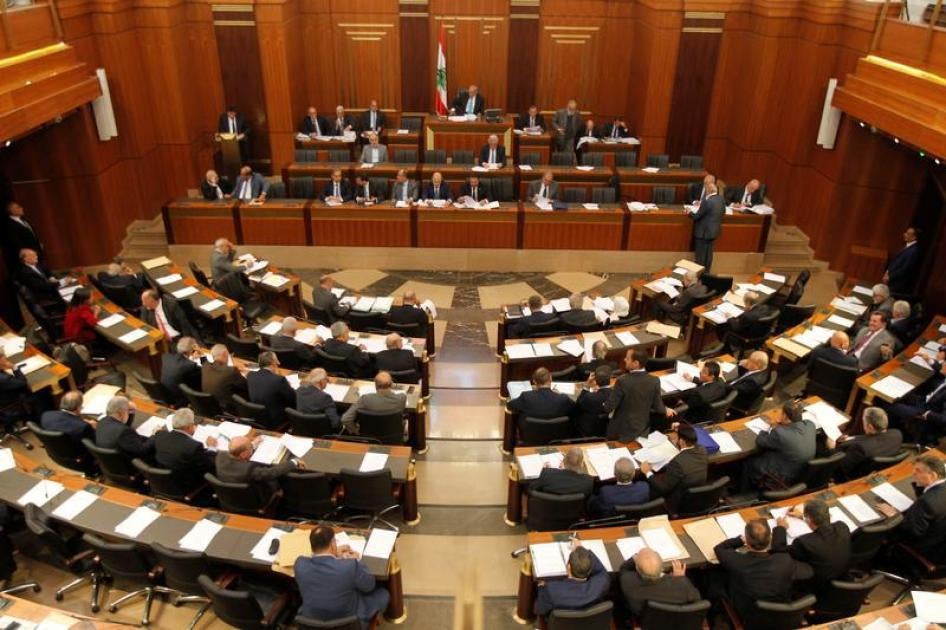(Beirut) – A new law criminalizing torture is a step forward for Lebanon, but falls short of civil society expectations and Lebanon’s obligations under international law, Human Rights Watch said today. Lebanese authorities should prosecute torture cases under the new law and Lebanese courts should interpret the law in line with Lebanon’s obligations under international human rights law.
The law amends article 401 of the criminal code to establish a crime of torture, including acts that lead to severe physical or mental pain or suffering. Lebanon did not previously have a law criminalizing torture, though article 401 narrowly criminalized the use of violence to extract confessions. Shortcomings in the new law include a statute of limitations for prosecuting torture, and ongoing jurisdiction of military courts over certain torture cases. The law went into effect on October 26, 2017, following its publication in the official gazette.
“After languishing in parliament for years, the new law is a step forward for efforts to combat torture in Lebanon,” said Nadim Houry, terrorism and counterterrorism director at Human Rights Watch. “But this law will only be effective if Lebanese authorities actually use it to investigate and prosecute credible allegations of torture.”
Human Rights Watch and Lebanese human rights organizations routinely document credible reports of torture in Lebanon. However, authorities have failed to properly investigate allegations of torture and ill-treatment by security services, and accountability for torture in detention remains elusive. In July, at least four Syrians died in military custody within days of their arrest, amid evidence of torture. Although local media reported the military concluded an investigation into the deaths on July 24, the military has not published the results.
The new law precludes any excuse or justification for the use of torture, prohibits the use of testimony extracted under torture as evidence except against a person accused of committing torture, and provides special procedures for investigating allegations of torture and witness protection. It also provides for rehabilitation and compensation for victims, but includes no detail or guidance for carrying out those provisions. And it fails to criminalize cruel, inhuman, and degrading treatment or punishment, and limits the definition of torture to situations of investigation, interrogation, judicial investigation, trial, and punishment.
As a party to the Convention against Torture and Other Cruel, Inhuman or Degrading Treatment or Punishment, Lebanon is required to take effective measures to prevent torture, ensure that all acts of torture are offenses under its criminal law, provide for appropriate penalties, and prevent other acts of cruel, inhuman, or degrading treatment or punishment.
Following Lebanon’s first appearance in 2017 before the Committee Against Torture, the international body charged with overseeing implementation of the convention, the committee critiqued a draft of this law, noting in its concluding observations that there should be no statute of limitations. Under the new law, the statute of limitations of 3 to 10 years begins to run upon the victim’s release from detention or custody.
The law establishes a range of penalties depending on the effect of the torture – from 1 to 3 years in prison for cases that do not result in physical or psychological harm; 3 to 7 years if it leads to temporary disability, harm, or physical or psychological impairment; 5 to 10 years if the harm is permanent; and 10 to 20 years if it leads to death. The Committee Against Torture, in reviewing a draft of this law, found that the sentences did not adequately reflect the grave nature of the crime of torture, and has previously recommended sentences of 6 to 20 years.
The new law also fails to remove a requirement that security agencies approve prosecution of their officers in cases of torture. However, under article 15 of Lebanon’s Code of Criminal Procedure, the public prosecutor may initiate proceedings against individuals who are acting as judicial police officers without prior approval.
While the law’s preamble specifies that torture cases should be heard by regular judicial courts, this is not reflected in its operational text, leaving open the possibility that Lebanon’s military courts will continue to hear some cases.
Human Rights Watch has previously found that Lebanon’s military courts do not respect due process rights and that their structure undermines the right to a fair trial, including the right to be tried before a competent, independent, and impartial court and the right to a public hearing. Many military court judges are military officers, appointed by the defense minister, who are not required to have a law degree or legal training. Human rights organizations and journalists cannot monitor trials without the presiding judge’s prior approval.
Lebanon should make public the number of prosecutions and convictions for torture under the new law, Human Rights Watch said.
In October 2016, Lebanon’s parliament passed a law to establish a National Human Rights Institute, including a National Preventative Mechanism to investigate the use of torture and ill treatment. However, Lebanon has not established the institute or appointed its members.
“On paper, Lebanon has beefed up its anti-torture arsenal, but in practice, these measures have not yet translated into concrete steps or actions,” Houry said. “The real test will be whether we start seeing prosecutions and accountability for cases of torture.”
|
Commentary
Lebanon: New Torture Law Positive, But Incomplete
Prosecutions Will be Key Test
Your tax deductible gift can help stop human rights violations and save lives around the world.
Region / Country
Topic
Most Viewed
-
November 25, 2019
A Dirty Investment

-
June 3, 2025
“They’re Ruining People’s Lives”

-
December 21, 2023
Meta’s Broken Promises

-
January 25, 2024
“We’re Dying Here”

-
February 19, 2018
“All We Want is Equality”





